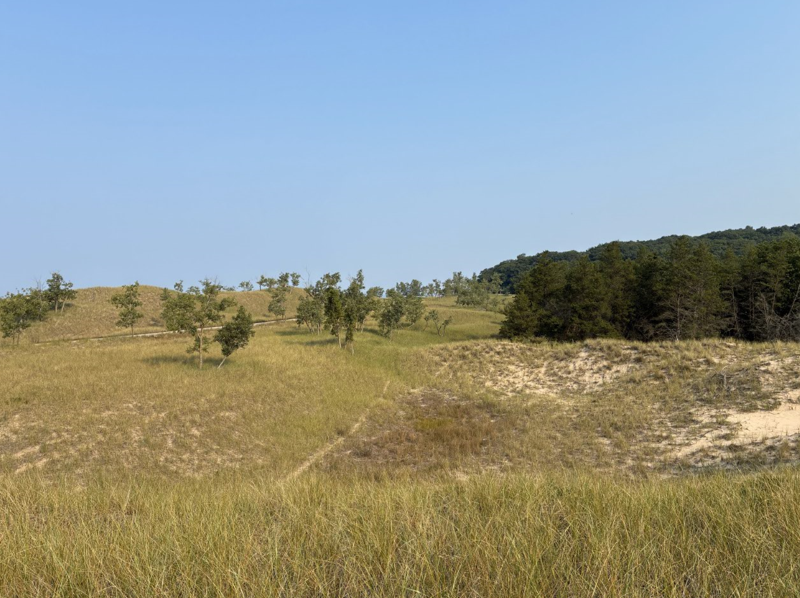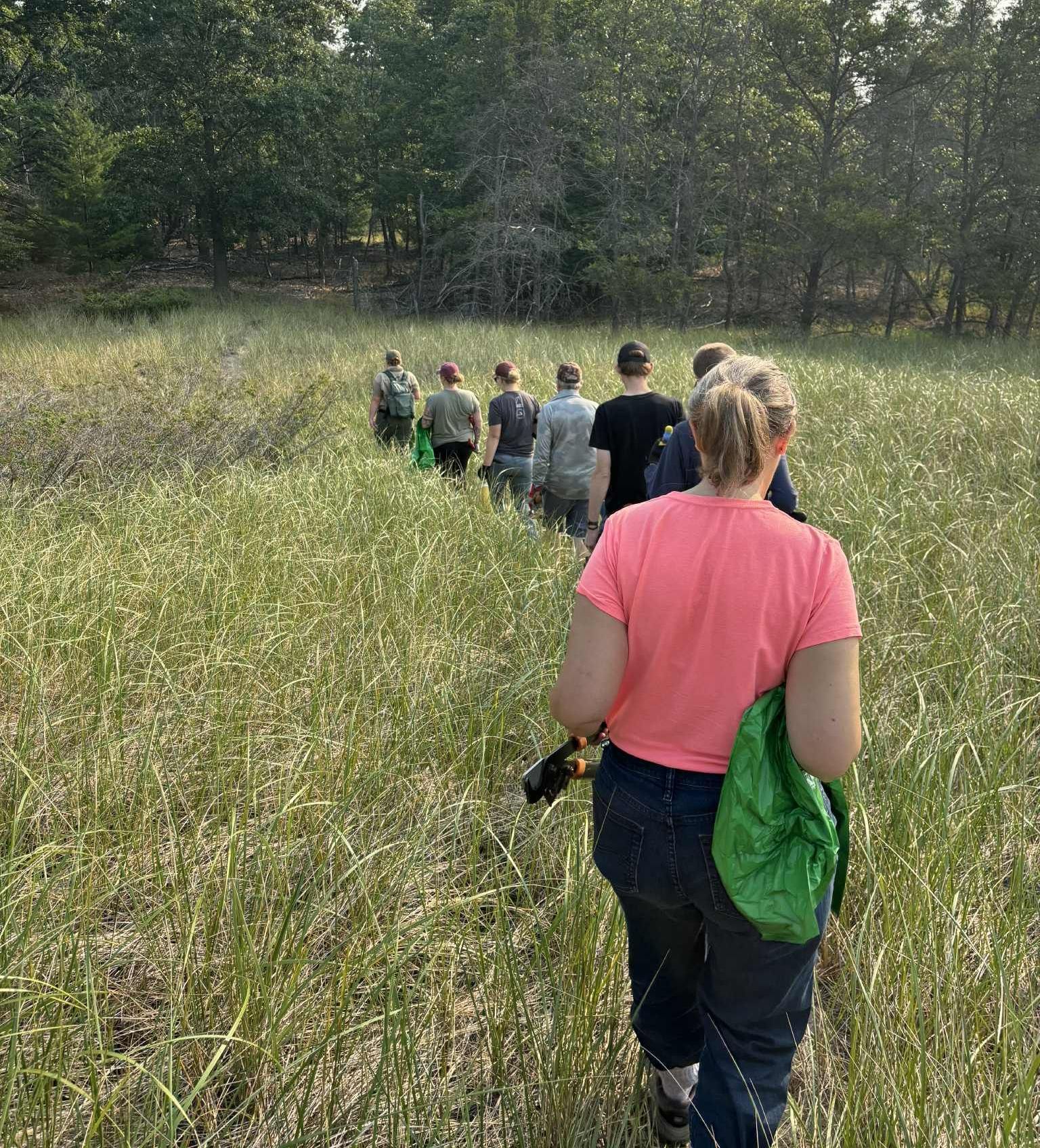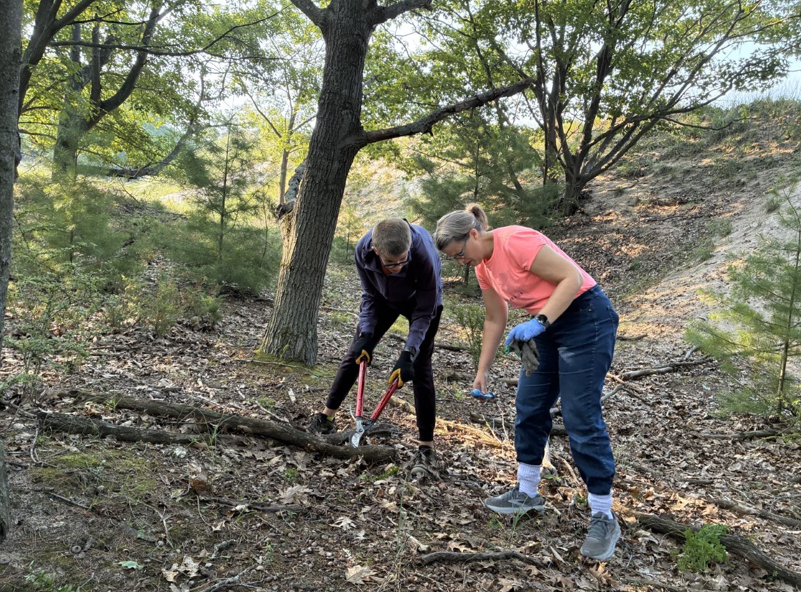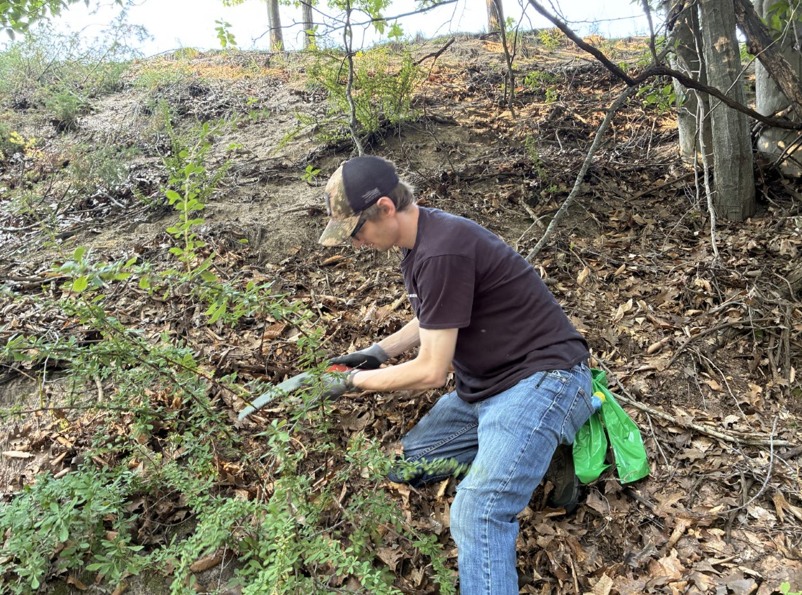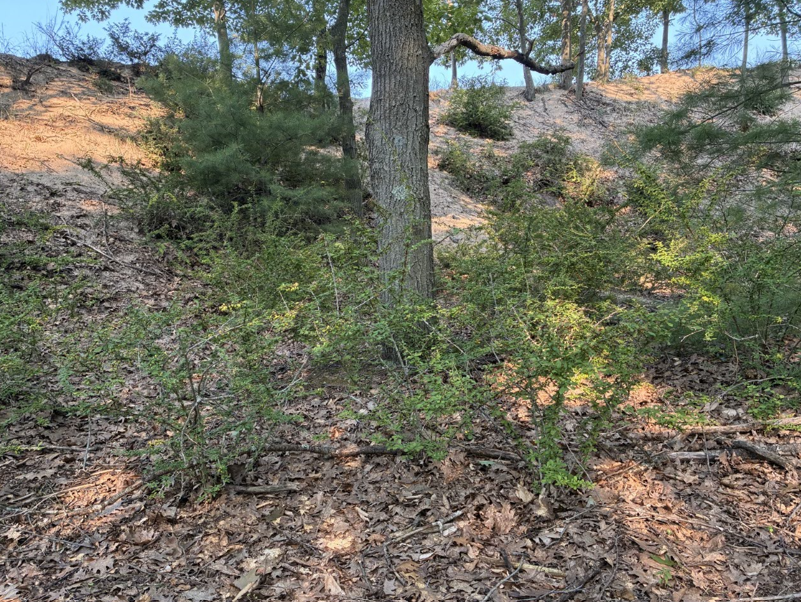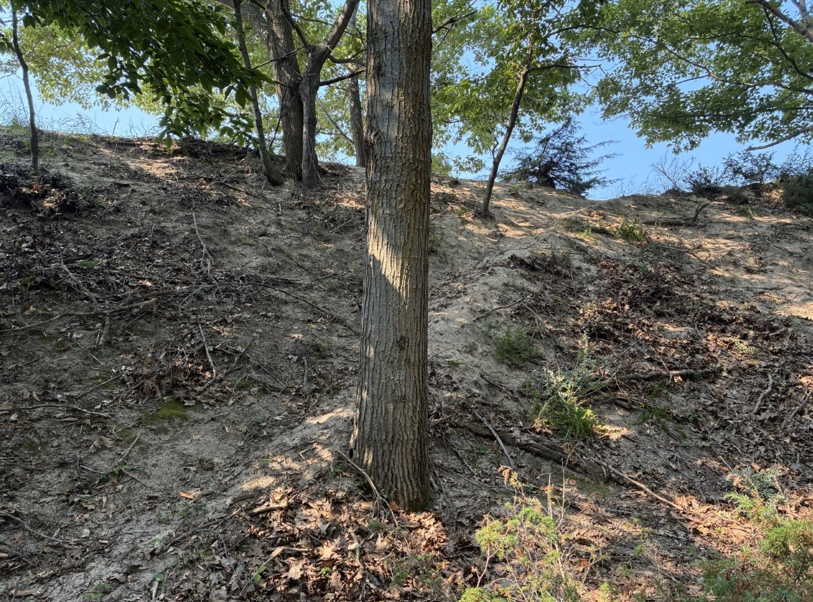On the Ground: Invasive Species Removal Along the Muskegon Dunes
On Saturday, August 2, 2025, MUCC's On the Ground program partnered with the Michigan DNR’s Stewardship Unit for an invasive species removal at Muskegon State Park in Muskegon County. Sitting along the shores of Lake Michigan, this park offers a wide range of recreational activities with access made easy by local campgrounds and boat launches.
Into the Forested Dunes
After learning the tricks to identify the invasive Japanese barberry, volunteers made their way into the dunes where this species was encroaching. The work group was greeted by a bald eagle soaring overhead, just one of the many species which benefit from conservation work like this. While traversing the land, volunteers also came across the invasive spotted knapweed where the DNR provided facts and identification methods of the purple flower as a bonus to the day. This project will help improve habitat for species found in the area including raptors and native shrub and tree species. In total, volunteers directly improved approximately 1 acre of wildlife habitat through this project.
Why is it Important?
Dunes are a dynamic ecosystem which are home to a diverse set of wet of vegetation and wildlife, like those found in Muskegon State Park. Native plants play a key role in the stabilization of the dune structure which can be destroyed through competition of invasive species like spotted knapweed and Japanese barberry. The removal and control of these invasive species is critical in the conservation process of the dunes.
Learn More
Want to help improve fish and wildlife habitat in your area? Visit our website at mucc.org/on-the-ground for a list of upcoming projects. Our mission is to conserve and enhance Michigan’s public lands and wildlife through volunteer stewardship. We invite both consumptive and non-consumptive users to band together and improve fish and wildlife habitat across the state. Common habitat projects we complete include native plantings, invasive species removal, brush pile building, river cleanups, and more. Our projects are built for all ages, so bring your friends and family and come join us! Registered volunteers receive lunch and a free appreciation gift for their efforts. Registration links with more event details can be found on our website.
To stay connected with all things MUCC, follow us on Facebook, Instagram, X, and LinkedIn.
Recent Posts


